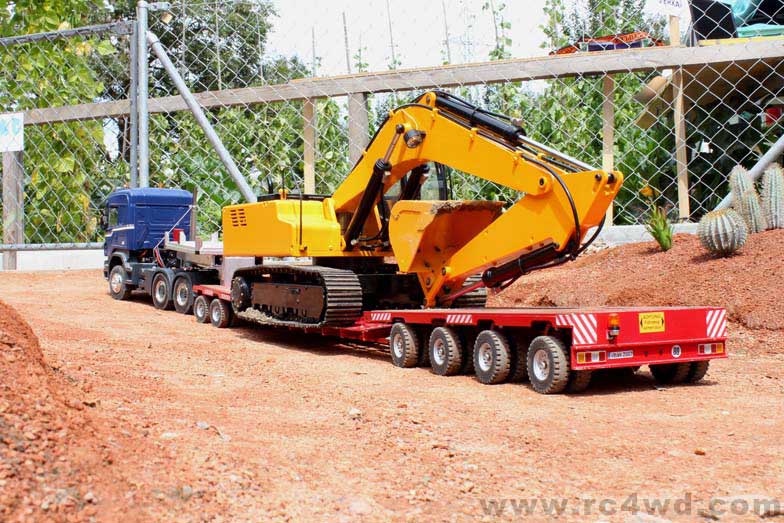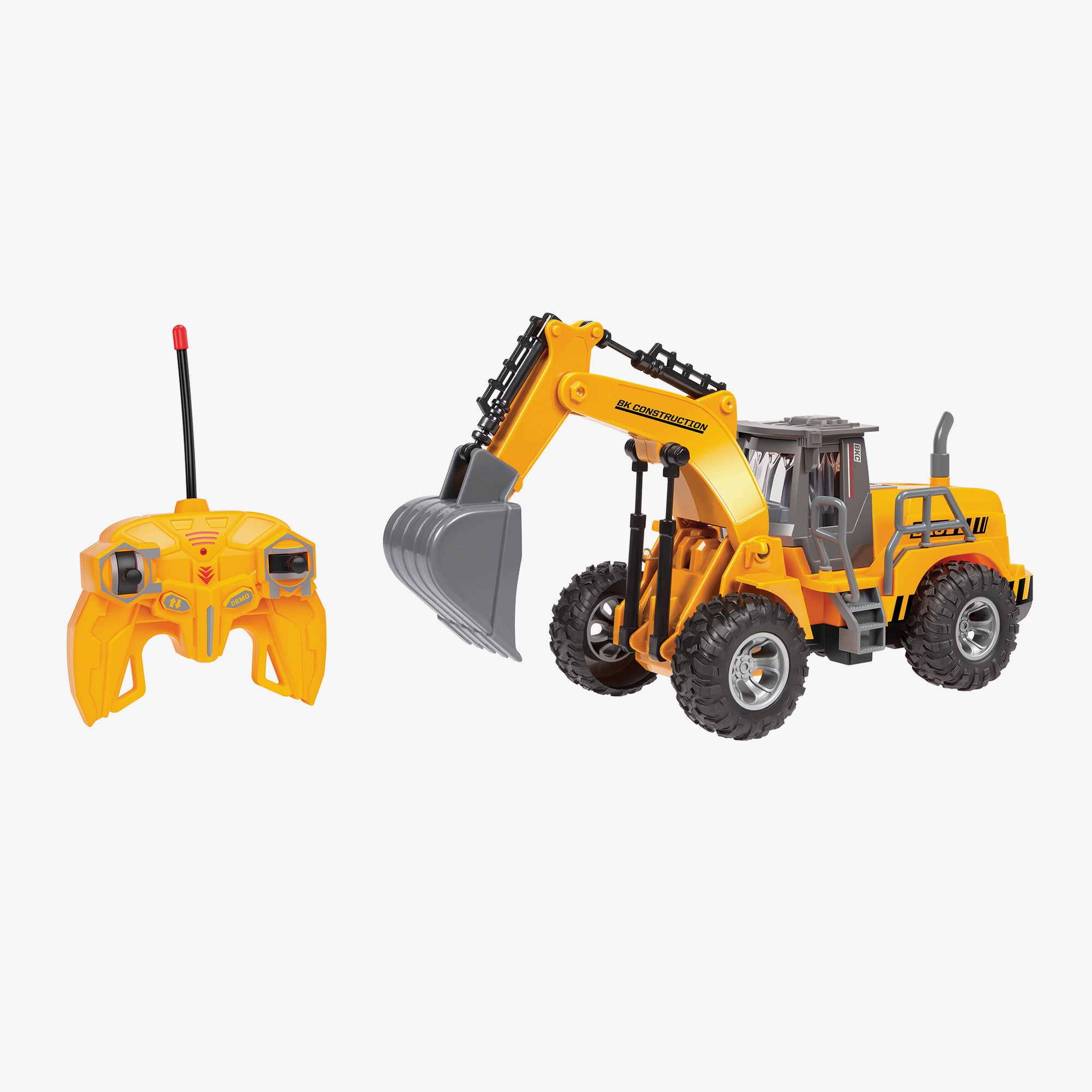Discover the Relevance of Excavator in Modern Building And Construction Projects
Excavators are important devices in modern construction jobs. Their convenience enables them to execute a broad variety of jobs, from excavating and grading to demolition and website preparation. Advanced attributes, such as hydraulic accessories and GPS, boost their capacities and efficiency on task sites. As the market evolves, the value of excavators expands a lot more. Understanding their role can expose understandings right into the future of building and construction techniques. What lies in advance for these equipments?
The Convenience of Excavators in Numerous Projects
Although excavators are often related to large construction projects, their versatility allows them to be utilized in a variety of applications, from property landscaping to utility maintenance. In metropolitan settings, excavators can browse limited rooms to dig structures for homes or set up drain systems. Their ability to carry out delicate tasks makes them suitable for landscape design jobs, where they can excavate for ponds or plant trees. On top of that, excavators play an important role in utility upkeep, efficiently digging trenches for pipes or wires without disrupting bordering areas. In agricultural applications, they aid in land clearing up and dirt preparation. Furthermore, their adaptability allows them to be geared up with numerous add-ons, improving their functionality throughout different jobs. This multifaceted nature of excavators not only improves numerous building procedures but additionally demonstrates their integral function in contemporary framework development and maintenance.
Secret Features and Kinds Of Excavators
The discussion on essential attributes and kinds of excavators highlights the essential qualities that make these machines invaluable in building. Numerous excavator types, each designed for details tasks, show their convenience and efficiency across various applications. rc excavator. Understanding these functions and categories is important for enhancing their usage in modern-day construction tasks
Excavator Enters Review
Excavators play an essential duty in modern building, supplying convenience and efficiency across numerous jobs. These hefty equipment systems can be found in several kinds, each customized for specific applications. One of the most usual kinds consist of spider excavators, understood for their stability on uneven terrain, and wheeled excavators, which offer higher movement on smooth surfaces. Miniature excavators are preferred for small-scale jobs and tight areas, while long-reach excavators are made for deep excavating. In addition, there are customized excavators, such as hydraulic excavators, which boost power and accuracy. Each type features one-of-a-kind capacities, making them important for jobs ranging from digging and grading to demolition and material handling. Understanding these variations enables construction specialists to select the ideal excavator for their job needs.
Trick Includes Explained
Comprehending the essential features of excavators enhances their efficient application in construction projects. Excavators are identified by their effective hydraulic systems, which offer the required force for excavating, lifting, and moving products. Their verbalized arms permit a wide variety of movement, assisting in specific operations in confined rooms. Furthermore, the variety of accessories, such as buckets, grapples, and augers, increases their flexibility to meet various project needs. The dimension and weight of excavators also add to their stability and ability to move on various surfaces. In addition, advancements in modern technology have caused the assimilation of GPS and automation, enhancing precision and efficiency in excavation jobs. These features jointly position excavators as indispensable tools in modern-day construction.
Applications in Building
Transforming building sites, excavators play a crucial role across different applications, varying from residential building jobs to large-scale framework developments. These flexible equipments are equipped for tasks such as digging foundations, trenching for utilities, and site grading. Different sorts of excavators, consisting of spider, rolled, and mini excavators, offer certain benefits customized to the project requirements. Spider excavators excel in harsh surfaces, while wheeled excavators offer movement on smooth surfaces. Tiny excavators are optimal for confined areas, making them prominent in metropolitan setups. The performance and power of excavators substantially accelerate construction processes, guaranteeing timely job completion. Their versatility additionally improves their relevance, permitting building and construction groups to take on a varied array of challenges efficiently.
Enhancing Effectiveness and Productivity on Work Sites
Taking full advantage of performance and performance on task websites is a crucial objective in modern-day building. Excavators play an essential role in accomplishing this goal by streamlining numerous jobs. Their capability to perform numerous functions-- such as grading, lifting, and excavating-- decreases the need for extra equipment, thereby conserving time and resources.Moreover, excavators enhance workflow by allowing for faster completion of tasks. With innovative attributes like hydraulic accessories and GPS modern technology, they can implement exact operations that reduce mistakes and rework. This accuracy not only boosts the top quality of job yet likewise maximizes material use, adding to cost savings.The flexibility of excavators permits them to adjust to different website conditions, making certain that projects proceed smoothly despite obstacles. By integrating excavators right into building and construction processes, groups can greatly boost their total productivity, resulting in timely job completion and enhanced success.
Safety Benefits of Utilizing Excavators
Excavators greatly improve safety and security on building and construction websites through enhanced driver exposure and lowered manual work dangers. By giving drivers with a clear sight of their environments, excavators aid to avoid injuries and accidents. Furthermore, the equipment minimizes the need for employees to take part in dangerous hand-operated read review tasks, additionally advertising a more secure workplace.
Enhanced Driver Presence
Although construction websites can be chaotic and filled up with potential risks, boosted driver presence plays an essential role in ensuring safety when using excavators. Modern excavators are made with large, unobstructed windows and purposefully placed mirrors, allowing drivers to preserve a clear sight of their environments (rc excavator). This boosted presence is vital for spotting pedestrians, other equipment, and various challenges, considerably minimizing the danger of mishaps. Additionally, numerous excavators incorporate advanced technology, such as sensors and video cameras, to supply drivers with added perspectives, further improving recognition. The ability to see more clearly not just help in reliable procedure but likewise cultivates a much safer workplace, making it easier for operators to browse complex building websites without compromising safety and security standards
Lowered Handbook Labor Risks
When manual labor is decreased through using excavators, countless safety advantages emerge, noticeably improving the health of construction employees. Excavators reduce the physical pressure connected with heavy lifting and repeated tasks, properly decreasing the threat of musculoskeletal injuries. By automating procedures such as excavating, grading, and relocating materials, they allow workers to keep a safer distance from potential hazards. Additionally, excavators are furnished with innovative security attributes, such as rollover protection systems and improved operator ergonomics, which additionally secure personnel on site. The result is a significant decrease in work environment crashes and injuries, leading to raised productivity and spirits amongst building groups. Inevitably, the fostering of excavators adds to a safer and a lot more reliable construction setting.
Excavators in Earthmoving and Website Preparation
In modern construction, a significant portion of earthmoving and site preparation tasks counts on the performance and adaptability of excavators. These equipments are made to take care of numerous dirt types and terrain, making them important for grading, digging, and trenching activities. Their hydraulic arms can be equipped with various add-ons, such as containers and augers, allowing drivers to customize like this their approach based upon particular job requirements.Excavators stand out at relocating huge volumes of earth promptly and effectively, which accelerates the total construction timeline. They can browse tight areas and challenging websites where standard tools might struggle, enhancing efficiency. Additionally, the precision of excavators guarantees that site preparation abides by stringent specifications, lessening the danger of errors that might cause pricey rework.
The Role of Excavators in Demolition Tasks
Excavators play a necessary function in demolition jobs, as they possess the power and agility required to take down frameworks successfully. Geared up with numerous attachments such as hydraulic breakers, shears, and grapples, these machines can adapt to various demolition demands, whether for small buildings or huge commercial sites. Their versatility makes it possible for drivers to take on complicated projects while preserving safety and precision.In addition to their demolition capacities, excavators promote debris removal, making certain that work sites stay organized and secure. By breaking down frameworks into manageable items, they permit streamlined clearing up and recycling of products, lining up with modern-day sustainability efforts.Moreover, excavators can access tight areas and browse uneven surface, making them crucial in urban demolition projects. Generally, their durable layout and multifunctionality make excavators a vital property in the demolition stage of building, adding significantly to project timelines and efficiency.


Future Trends in Excavator Innovation and Usage
As the building market advances, advancements in excavator technology are poised to transform their usage and effectiveness considerably. One considerable trend is the integration of automation and expert system, enabling excavators to operate with very little human intervention. This shift will enhance accuracy in jobs such as grading and trenching, reducing human error and increasing productivity.Additionally, the rise of hybrid and electrical excavators is forming a much more sustainable building and construction environment, reducing carbon exhausts and fuel costs. Enhanced telematics systems are likewise emerging, making it possible for real-time tracking of machine performance and upkeep needs, which can lead to far better functional effectiveness and longer tools lifespan.Moreover, innovations in add-on modern technology are broadening the flexibility of excavators, permitting them to execute a more comprehensive series of jobs. The mix of these trends shows a future where excavators are smarter, greener, and a lot more adaptable, inevitably improving construction job characteristics.
Regularly Asked Inquiries
Exactly How Do Excavators Contrast to Various Other Construction Equipment?
Excavators, identified by their convenience and power, master excavating and earthmoving compared to various other machinery. Their ability to perform various jobs, consisting of lifting and demolition, makes them crucial in building tasks, improving general performance.

What Is the Typical Lifespan of an Excavator?
The average lifespan of an excavator generally ranges from 7,000 to 10,000 operating hours, depending upon upkeep, usage problems, and design. Correct care can extend this lifespan, making certain peak performance throughout its operational years.
Exactly How Are Excavators Maintained for Optimum Performance?
Excavators need normal upkeep for peak performance, consisting of regular evaluations, fluid checks, filter replacements, and timely repair work. Executing a preventative upkeep schedule aids prolong their life expectancy and assurances reliable operation check my source in various building and construction environments.
What Are the Prices Related To Purchasing an excavator vs. renting out?
The prices connected with renting out versus acquiring an excavator differ considerably. Renting offers reduced upfront costs however can build up over time, while purchasing calls for a significant preliminary investment, but offers long-lasting cost savings and property possession benefits.
What Training Is Needed to Run an Excavator?
Running an excavator calls for specialized training, normally including security procedures, equipment procedure methods, and environmental awareness. Certification programs often mandate sensible experience, enabling drivers to manage various jobs efficiently while ensuring conformity with industry guidelines. The most common kinds consist of spider excavators, known for their security on irregular surface, and rolled excavators, which give better flexibility on smooth surface areas. Miniature excavators are favored for small-scale tasks and limited spaces, while long-reach excavators are made for deep digging. Furthermore, there are specialized excavators, such as hydraulic excavators, which improve power and precision. Various kinds of excavators, consisting of spider, wheeled, and mini excavators, provide specific benefits tailored to the project requirements. Spider excavators succeed in rough terrains, while rolled excavators use movement on paved surface areas.